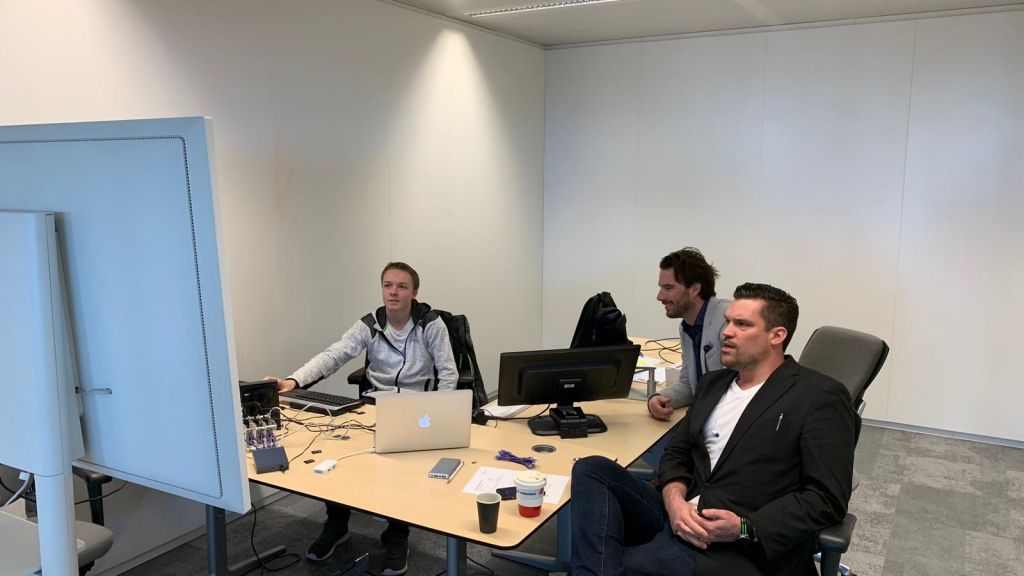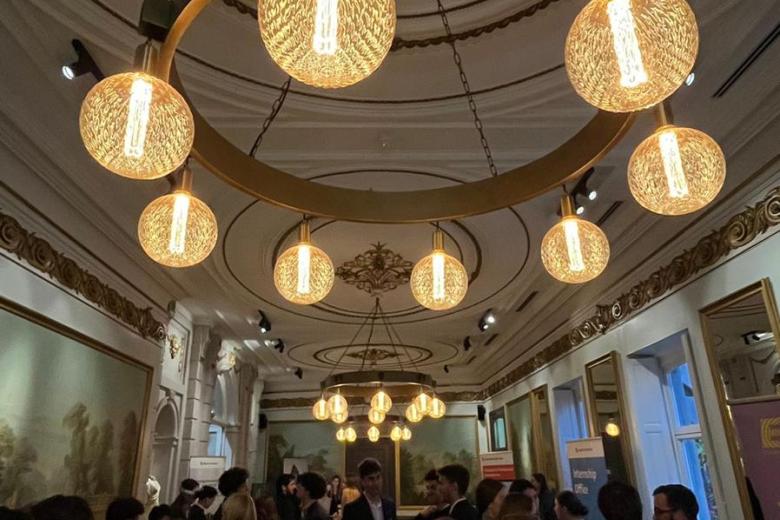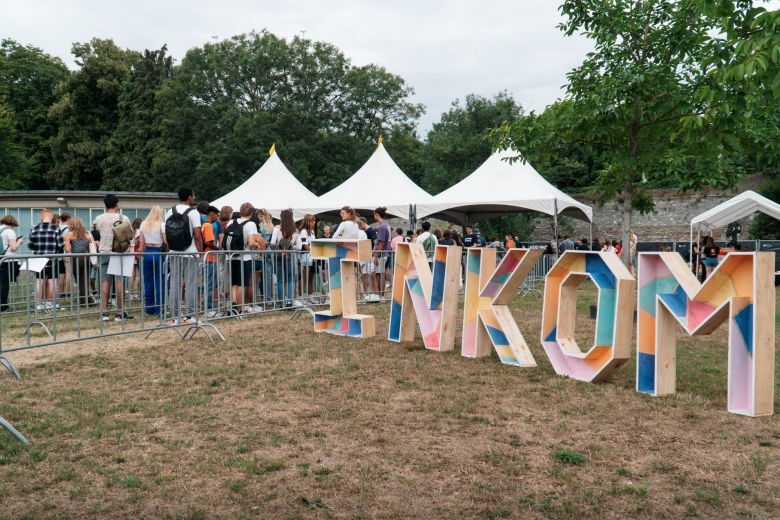Stella Maris Student Rick Okkersen (14) spins up a grin cryptocurrency miner in one day
From March 19 to 21 the 14 year old Rick Okkersen, a highly talented developer and representative of the next generation of global innovators, visited the Brightlands Smart Services Campus in Heerlen for a three day, mini internship to see what life is like in the innovation environment at the campus.
Rick began programming at age nine when he bought his first server and has since held interest in blockchain, cryptocurrency, app development, and especially AI. For the past four years, alongside helping his teachers in better managing the academic content distribution to his peers, Rick has developed artificial intelligence solutions to help him in his studies.
“I started working on building an algorithm to help students better understand academic material, starting with myself.”

For three days Rick hung out with the entrepreneurs on the campus and had a ride-along in an innovation program at the campus called the ‘PreXLR’, or pre acceleration program, in which early stage founders are tasked with understanding the problem that they will eventually provide a solution for, and to understand, in granular detail, the people who feel those problems the strongest. These founders, as Rick learned, focus first on the problem and those who have it, because this is the most efficient way to then build a solution, and in turn grow the startup into a company which solves problems not for millions of people, but billions.
Miners
The initial task presented to Rick was to set-up Ethereum nodes on Raspberry Pi’s - or in non-technical terms program small computers with copies of the Ethereum blockchain to help maintain the network. He quickly moved past this task and went right to setting up was is called a ‘miner’ for another blockchain called ‘Grin’. Miners are the nodes in the blockchain network which keep it secure. In return for keeping it secure, the miner is rewarded with a cryptocurrency for their efforts. At the time of writing this article, the miner had ‘earned’ 0.091 Grin tokens.
Rick did this with the help of Dean Masley - one of the cofounders who, along with Nathalie Drost, started a company called ’NestEgg’ so that pensions can more efficiently be invested in infrastructure like wind farms, solar farms, and roads, ultimately allowing the average citizen pensioner the ability to own and use his or her percentage of the energy or utility coming from any piece of infrastructure without any cost. Nestegg works with APG in their Groeifabriek program to help startups create the future of pensions.
This was not the first time Rick came into contact with the campus. Rick participated in the Young BrightHack event, back in November 2018, where he worked on innovating the current educational system.
Future
The future looks bright for Rick Okkersen. During his time at the campus he gained insights into what life could be like if he had his own startup. Additionally, he made new contacts with current startups that have potential roles for Rick and people like him - the curious and motivated who will run the future of innovation not only in Limburg, but in the rest of the world as well, so we all hope that he comes back and creates a better future for all.
Special thanks to his grandfather for connecting him to the campus and to Robin Vermeeren for helping him get a wifi connection to the network.
For any questions, please contact christopher.sparks@brightlands.com.
Also read
-
Maastricht Business Days 2024: Building bridges between talent and opportunity.
The Maastricht Business Days (MBD) have been a hallmark of the School of Business and Economics (SBE) since their inception in 1996, standing out as the most prestigious student recruitment event. Organized by SCOPE, the faculty’s dynamic study association, the MBDs connect over 600 students annually...
-
INKOM 2024
From Monday 19 until Thursday 22 August students will get to know each other and the city of Maastricht. This week is about getting to know Maastricht, the city where you will meet new people and you will have to learn to find your way around again. Not just at the faculty, the library and the sports...
-
Living and working at PITground in Sittard
Living in Sittard and studying in Maastricht, Eindhoven or even Tilburg or Leiden. A few years ago, this was hard to imagine, but nowadays it is increasingly common. Sometimes out of necessity, but often also as a conscious choice. The rise of more creative places to live outside the traditional...